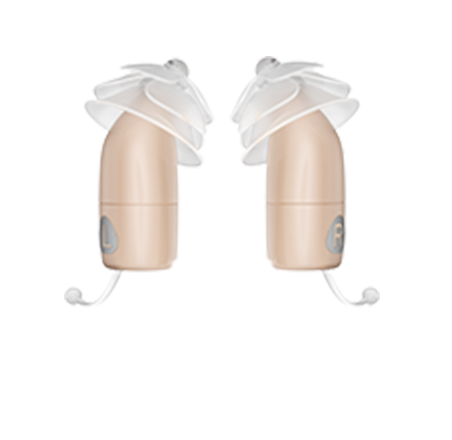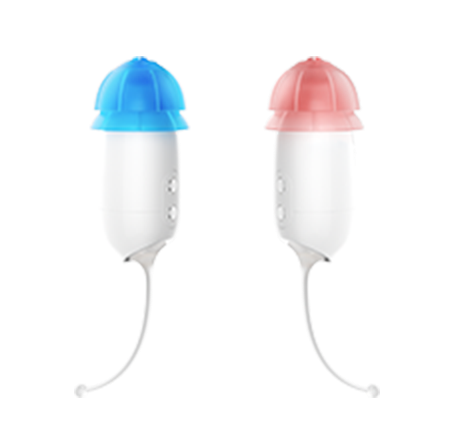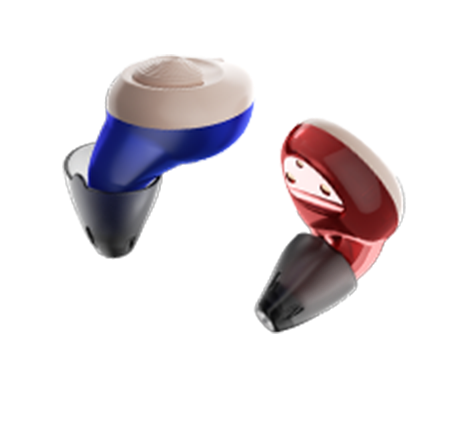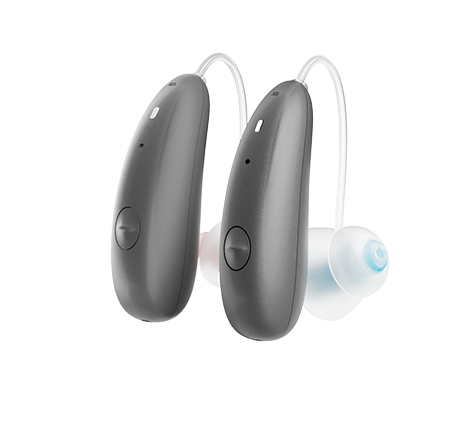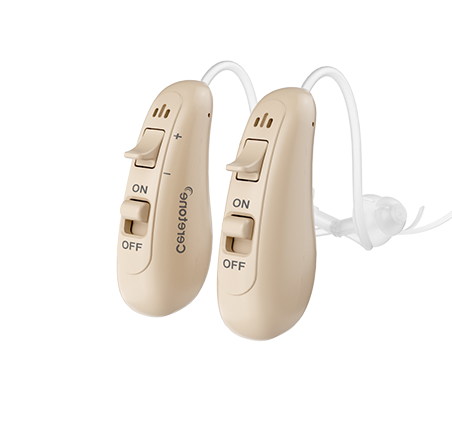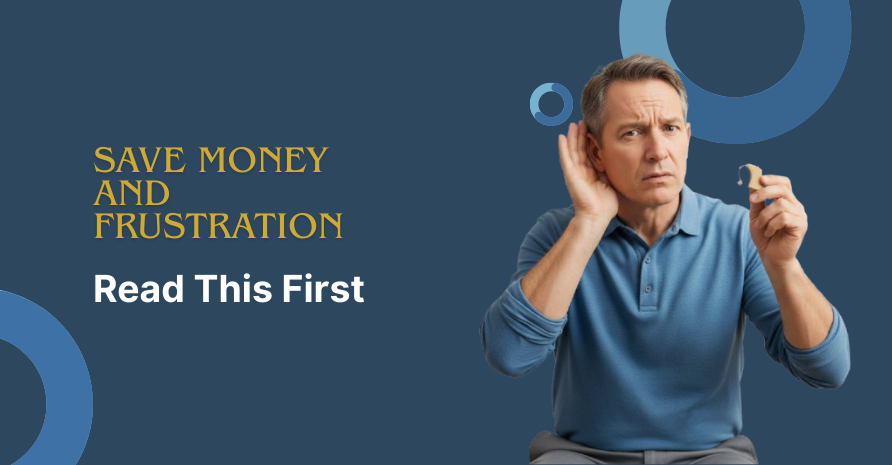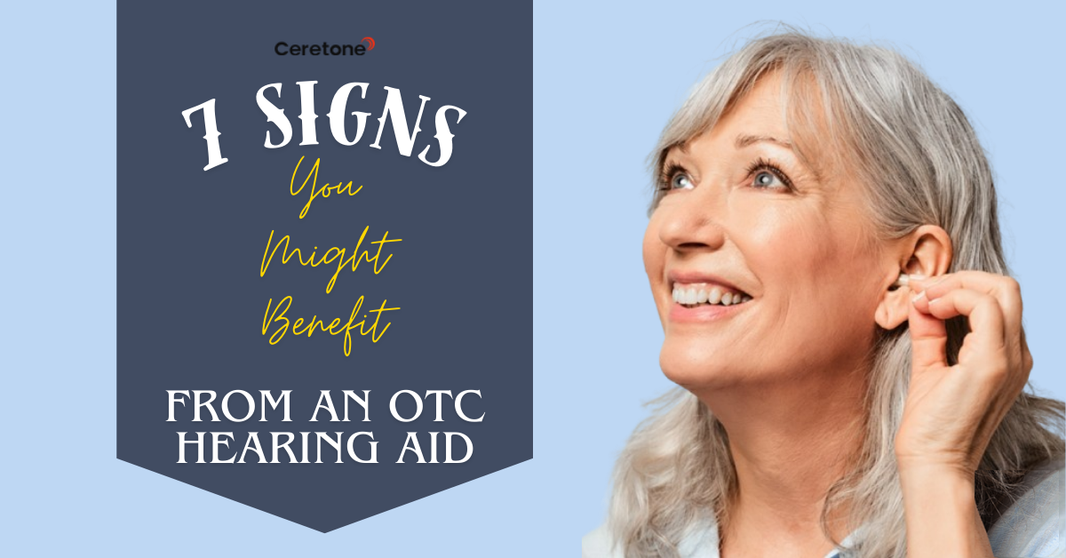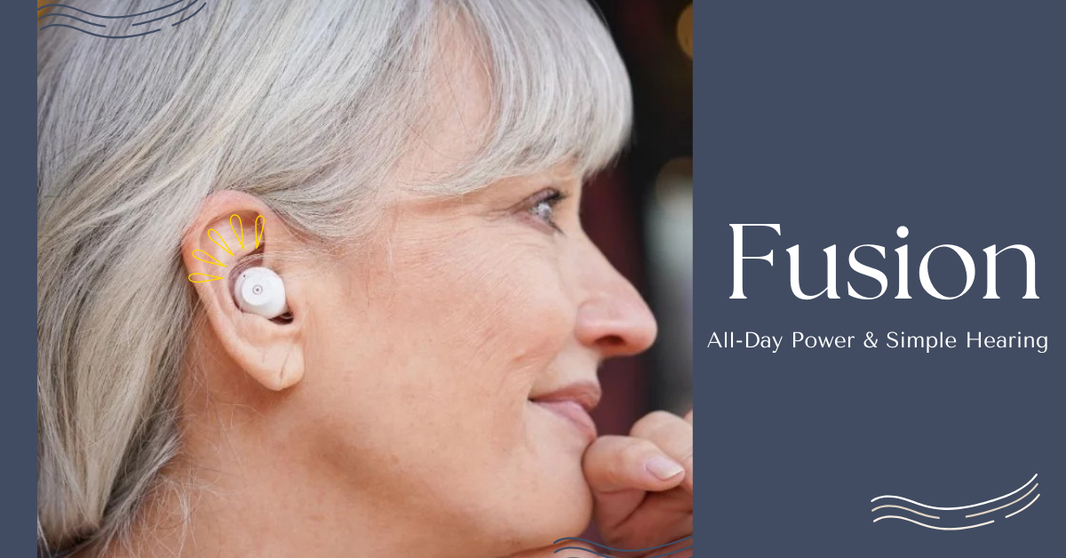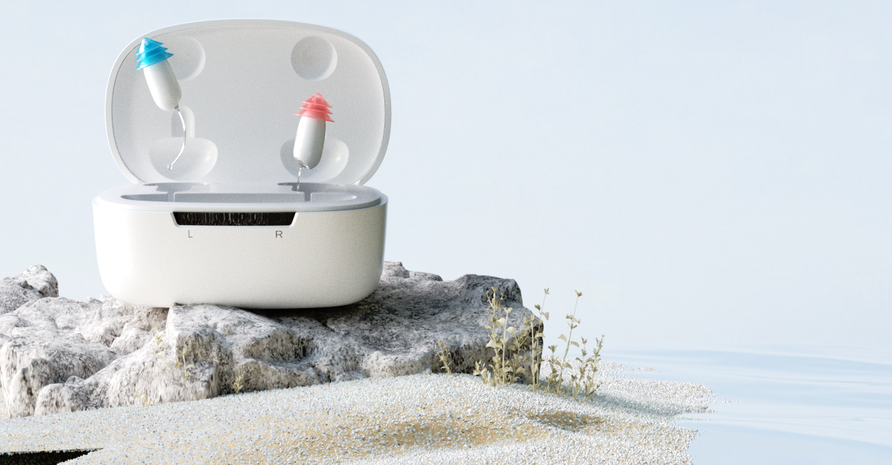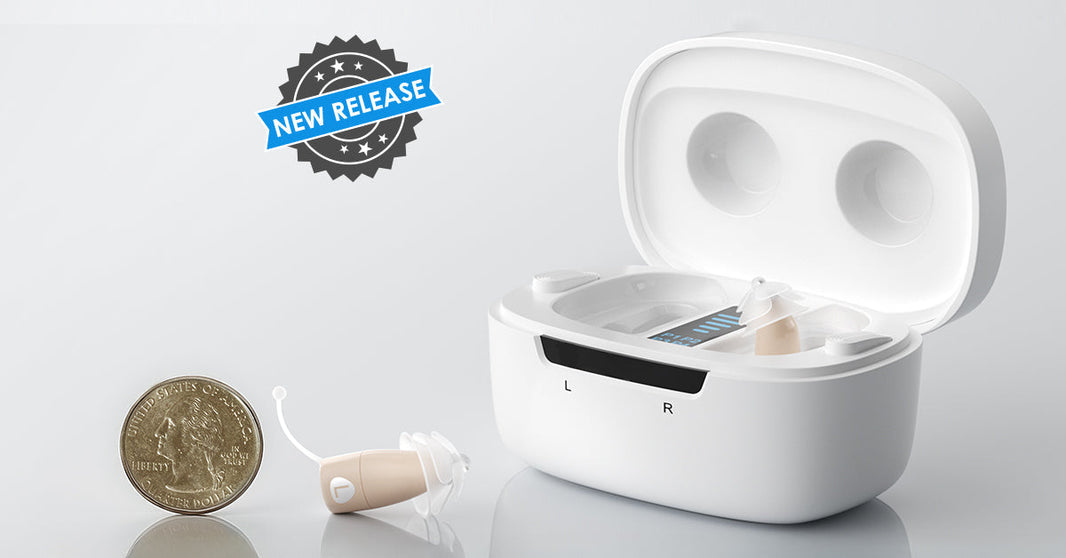
Why Do My Ears Itch When I Wear My Hearing Aid? Here’s How to Fix It!
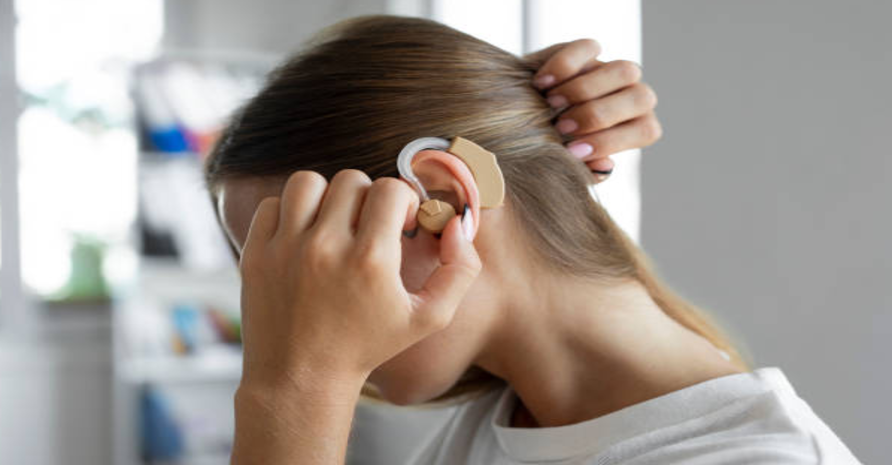
You’re wearing hearing aids, but they’re scratching your ears, leaving you wondering, "Why do my ears itch when I wear hearing aids?"
Welcome to the club! The World Health Organization reported that more than 1.5 billion people worldwide suffer from hearing loss, while nearly 30 million Americans use hearing aids.
Do you know how most people who wear hearing aids feel? That itchy feeling? Yes, that's right. You are not alone. It's very common, especially if you've just started using them.
So, if you want to soothe the discomfort, we will answer all your questions. It covers everything from common causes such as moisture buildup and allergic reactions to tips and solutions for relief.
Why Do My Ears Itch When I Wear My Hearing Aid?

Itchy ears are much more common than you think. Especially if you're new to wearing hearing aids. The skin on the ear canal is pretty sensitive and can easily get irritated. Are you wondering why this happens?
It’s a Fit Issue!
One main reason your ear itches is how your hearing aid fits. If your hearing aid doesn’t fit you properly or is too big, it can easily trap a lot of moisture behind the hearing aid.
- Dome Size: What's the significance of choosing the right dome? A dome that is too small might feel unstable and irritate the ear canal, while a dome that is too big can build pressure that can cause itching. It is important to choose hearing aids with multiple dome sizes so that you can choose the one that fits the snuggiest.

- Receiver Length of Devices: For receiver-in-canal (RIC) hearing aids and behind-the-ear (BTE) hearing aids, the length of the tubing or receiver has to be just right. Otherwise, a poor fit will definitely cause irritation and itching.
- Open Fittings vs. Earmoulds: The choice between the two is a matter of comfort and personal preference. Open fittings are popular because they sit lightly in the ear, allowing air to circulate and creating a more natural and ventilated feel. Earmoulds are customized to fit, offer a secure fit, and can benefit people with severe hearing issues. However, open fittings have more sizing options, making them the better choice.
Moisture Trapping Issues
One of the biggest reasons your ears might itch if you wear hearing aids is moisture. Sweat, humidity, and even condensation that builds up inside your ears could get trapped. This creates a damp environment where bacteria or fungi may flourish, leading to itching or infections.
You can try putting your hearing aids in a dry place, or if you live in a more humid region, try buying a dehumidifier. This will help keep your hearing aids dry and minimize sweat and moisture buildup.
You can also try keeping a cloth handy with you and wipe away any excess sweat that accumulates around your ear. Giving your ears a break from the hearing aid will also increase ventilation and help with moisture buildup.
Allergic Reactions
Some people can have skin sensitivity to the materials present in hearing aids. Materials such as silicon, acrylic, or adhesives used in certain earmoulds or domes can cause allergic reactions.
If you see any evident redness, swelling, dry or flaky skin, more sweat and moisture buildup, or itchiness around the ear canal area, this could be a sign of an allergic reaction. Excess sweat combined with itchiness can often make the skin more reactive.
Wax Buildup

Your hearing aid blocks the natural movement of earwax in your ear, which causes the wax to build up over time. This buildup causes your ear to itch more often and irritates the skin in your ear canal.
The hearing aid also creates a warm, enclosed space for bacteria to grow, worsening the itchiness and irritation.
Over time, if proper hygiene practices are not implemented and the wax keeps building up, the buildup might even block the tiny parts of your hearing aid. This is why it is important to clean your hearing aids regularly with wax guards or go to a doctor for safe wax removal.
How to Avoid Itching When Wearing My Hearing Aid?
To stop your ears from itching is actually pretty simple and doable with a few proactive steps:
1. Manage Allergic Reactions
It's not uncommon for people to have itchy ears due to an allergic reaction. Here’s what you can do:
1) Recognize your symptoms. If you see any redness, swelling, or excessive itching, consult your doctor immediately before the situation escalates.
2) Hypoallergenic materials are here to save the day! Hypoallergenic hearing aids are made to be thoroughly cleaned during their making process so all irritants are removed. Ask your audiologist to help you find the right hearing aid with hypoallergenic materials.
2. Itch Relief Cream
Using a hearing aid itch relief cream can work wonders if you are someone with sensitive skin. The cream is a pretty smart invention. It not only minimizes friction while soothing irritation but also creates a protective barrier between your skin and your aid.
Don’t just use any itch cream. Use one that is specifically designed for your hearing aids.
3. Keep it Clean
Hygiene is another important step that will help you deal with your irritation. You're supposed to clean both your ears and your hearing aids much more frequently than you probably think. Cleaning avoids the chance for wax and oil to build up behind the ear.
In addition to cleaning and fitting your hearing aid perfectly, hypoallergenic domes are also available if you have allergies to certain materials used in most hearing aids.
Read More:
How Long Do Hearing Aids Last? The Essential Guide to Maximizing Lifespan
4. Fix Your Fit Issue
Your ears might keep itching if your hearing aids don’t fit. To prevent this, your device should be positioned securely in your ear canal. The dome size and the length of the receiver or tubing (for RIC and BTE hearing aids) are the main roles when it comes to fitting issues. It is very important to make sure that the dome can be inserted into your canal and the length of the receiver or tubing is not too long or too short.
5. Manage Your Ear Wax

Earwax is a barrier to protect your ears from dirt and germs, so it cannot really be prevented from building up. However, coupled with hearing aids, it is essential to keep your ears clean. The easy way out can be ear drops that help soften the ear wax. Still, if itching persists, it may be wise to visit an audiologist or other healthcare professional to undertake safe wax removal.
Avoid removing ear wax with cotton buds or your fingertips because this can push the wax further into the ear canal.
6. Try Some Home Remedies
There are a few home remedy options that you could also try to soothe that pesky itch. However, first, be sure to keep your doctor in the loop so nothing major comes up down the line.
1) A few drops of natural oils such as coconut, olive, or almond can offer mild relief in your ear.
2) Use a warm compress against your ear for a few minutes. This will help increase blood flow to your ear while soothing the itching. Be keen to look out for an eye infection; in that case, avoid the warm compress.
3) Have you figured out the symptoms yet? If yes, and you know for sure that it is the allergies, try using an antihistamine or hydrocortisone cream for relief.
Tips to Prevent Itchy Ears with Hearing Aids
Tip 1 – Give your ears a chance to ‘breathe’ by occasionally taking short breaks from your beloved hearing aids. This not only gives your ears a chance to relax, but any excess moisture buildup will also have time to dry out before you put your hearing aids back on.
Tip 2 – If you live in a more humid region, try putting your hearing aids in a dehumidifier overnight. This will help remove any excess moisture and reduce bacterial growth.
Tip 3 – Wash your hands before and after handling your hearing aids thoroughly to reduce any bacterial growth.
Tip 4 – For moisture management, moisture-wicking sleeves work like magic, but a small cloth can also work just as well to wipe any moisture that might build up.
Tip 5 – Wear loose-fitting headwear, headbands, or hats. Give your ears some room to breathe. This will reduce the moisture and heat buildup around your hearing aids, soothing your irritation.
When to Consult an Audiologist?

While itchy ears with hearing aids can be easily taken care of, it is crucial to understand and acknowledge when you need professional help. Being ready for when things escalate is important for your ear’s long-term health.
Here are a few signs you should consult your doctor/audiologist.
1) Constant itching: If you see a lot of redness around your ear, the itching is more than usual, or your ear starts feeling sore, it is important to consult your audiologist. They might be able to check out an underlying issue.
2) Improper fit: If your hearing aids rub against your skin, are too tight, or are too loose, they might need a size adjustment. Your audiologist can help you with this aptly.
3) Malfunctioning device: if you hear decreased sounds or your device feels static, this can be a telltale sign of device damage or improper calibration.
4) Infections: If you keep getting ear infections and the problem isn’t solved with home treatments or frequent cleaning, it's time to consult your doctor. Your device could be faulty, or you might be allergic to its materials.
Conclusion
If you are a new hearing aid wearer, itchy ears can be a minor inconvenience but surely one that can be taken care of. With proper cleaning and troubleshooting, your itchy ears can be soothed in no time.
If you’re looking for a hypoallergenic hearing aid that minimizes discomfort and prioritizes your ear health, you've come to the right place. With Ceretone hearing aids, you’re investing in better hearing and saying goodbye to itchy ears.
Read More:
How Long Do Hearing Aids Last? The Essential Guide to Maximizing Lifespan
OTC Hearing Aids vs Prescription
Completely In Canal CIC Hearing Aids: Everything You Must Know
Can I Use Neosporin in My Hearing Aid Domes?
Ceretone Core One vs Eargo 7 Hearing Aids: Alternative, Reviews & Price
